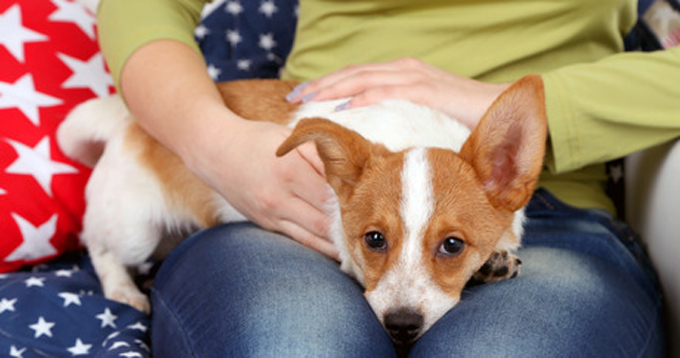A study shows that just by looking at your smile or frown, your dog can tell if you are happy or angry. Scientists showed dogs separate photos of the upper face around a person’s eyes and the lower part of the face — specifically the mouth. Each time, the dogs looked at that one feature, they could tell if the person was happy or angry.
The study was published in Current Biology and represents the first evidence that dogs can discriminate between emotional facial expressions in humans. No voices were heard — just photos of parts of human faces.
“We think the dogs in our study could have solved the task only by applying their knowledge of emotional expressions in humans to the unfamiliar pictures we presented to them,” says Corsin Müller of the University of Veterinary Medicine Vienna.
In this new study, scientists showed dogs photos of the same person with a happy or angry expression. The dogs didn’t see the full face. According to Muller, every time the dogs just saw the mouth or the eyes of the photos, they could tell if the person was happy or angry. It was a higher percentage than a random guessing.
“Our study demonstrates that dogs can distinguish angry and happy expressions in humans, they can tell that these two expressions have different meanings, and they can do this not only for people they know well, but even for faces they have never seen before,” says Ludwig Huber, senior author and head of the group at the University of Veterinary Medicine Vienna’s Messerli Research Institute.“It appears likely to us that the dogs associate a smiling face with a positive meaning and an angry facial expression with a negative meaning.”
The study is going into the next phase. Both Müller and Huber will explore a dog’s ability to recognize more human emotions. This will also be just from photos. The dogs will not hear human voices or tonal expressions. Plus, they will study how dogs express emotions, and how those emotions are influenced by human behavior. “We expect to gain important insights into the extraordinary bond between humans and one of their favorite pets, and into the emotional lives of animals in general,” Müller says.
Sources: Current Biology, Science Daily









